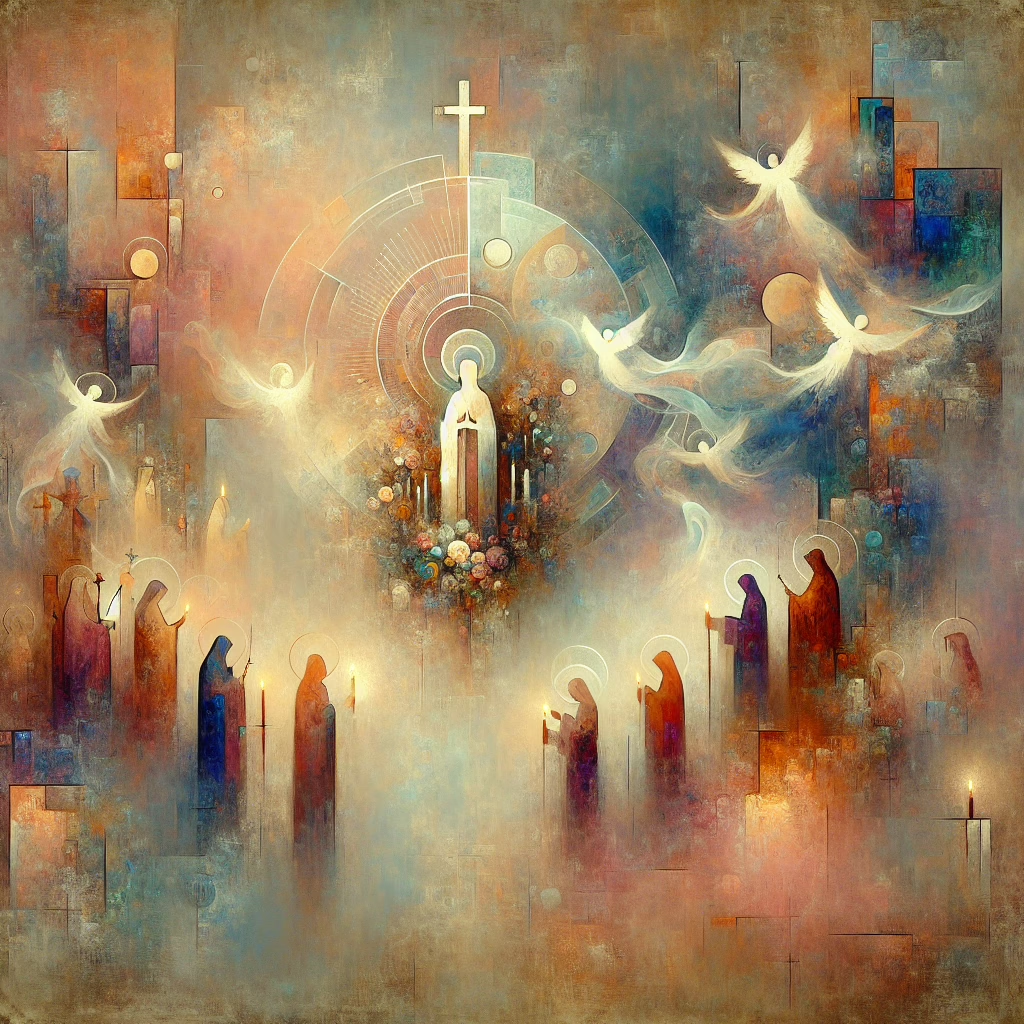The Catholic Defense: Exploring the Depth of Feast Days for Saints and Marian Apparitions
Introduction: Unveiling the Truth Behind Catholic Traditions
The celebration of feast days dedicated to saints and Marian apparitions in Catholicism often stirs controversy and misunderstanding among various Christian denominations. At the heart of these debates lies a divergence in interpreting Christian traditions and their role in the spiritual life of the faithful. To uncover the truth, we must first delve into the origins and significance of these feast days. Historically, they have served as vital components of the Church's liturgical calendar, designed to foster spiritual growth among believers. This exploration aims to demystify common Protestant objections and provide a compelling Catholic response.
1. Objection: Lack of Explicit Biblical Mandate
1.1 The Protestant Argument
Many Protestant communities argue against the celebration of feast days for saints and Marian apparitions due to the absence of a direct biblical endorsement for such practices. They espouse the doctrine of Sola Scriptura, asserting that Scripture alone should be the ultimate authority guiding Christian faith. According to this view, the veneration of saints and the celebration of feast days detract from the centrality of Christ's redemptive work and impose traditions that are not explicitly rooted in biblical texts.
1.2 Catholic Response: Tradition and Scripture in Harmony
The Catholic Church, while upholding the authority of Scripture, also recognizes the indispensable role of Tradition in conveying the fullness of Christian teachings. The early Church's practices of honoring saints laid a foundational precedent for the establishment of feast days. Feast days in Catholicism serve not to replace but to enrich the faith's understanding by drawing inspiration from the example and intercession of saints. As Hebrews 12:1 characterizes, the "cloud of witnesses" refers implicitly to saints as intercessors and exemplars within the communion of the faithful.
1.3 Supporting Evidence
"Stand firm and hold fast to the traditions you were taught, whether by an oral statement or by a letter of ours."
— St. Paul, 2 Thessalonians 2:15
The Church Fathers ardently defended the place of Tradition alongside Scripture. St. Irenaeus, in his work "Against Heresies," underscores the necessity of adhering to Church Tradition, which was established long before the Protestant Reformation. Evidence of feast days predating the Protestant Reformation strengthens the Catholic claim of their legitimacy. Link: Catholic Tradition
2. Objection: Idolatry Concerns and Priesthood of All Believers
2.1 The Protestant Argument
A prevalent Protestant concern is that the veneration of saints and Marian apparitions crosses into idolatry, undermining the tenet of the priesthood of all believers. This objection emphasizes direct access to God without intermediaries, fearing that such practices divert exclusive devotion from God and Christ.
2.2 Catholic Response: Honoring Saints as Models, Not Idols
In Catholic theology, the veneration of saints is strictly distinguished from worship. It serves as an act of acknowledging the saints' virtuous examples in the faith rather than elevating them to divine status. Saints and Marian apparitions play a crucial role in manifesting the Communion of Saints—an illustration of the solidarity among believers in Christ. The saints' intercession supplements, rather than supplants, Christ's sole mediatorship, akin to how a family member or friend might intercede on another's behalf.
2.3 Supporting Evidence
"Therefore, since we are surrounded by so great a cloud of witnesses, let us rid ourselves of every burden."
— Hebrews 12:1
The Scriptural basis for honoring saints as intercessors and witnesses is embedded within the Bible. The early Church acknowledged and practiced seeking the intercession of saints, with writings from Church Fathers and early theologians confirming this tradition.
Conclusion: Embracing the Richness of Catholic Tradition
Feast days and saint veneration within the Catholic Church are deeply rooted traditions that provide believers with spiritual enrichment and a structured framework for reflection and growth. Saints and Marian apparitions further the understanding of Mary's role in salvation history, demonstrating divine intervention and guidance. Through the sacred liturgical calendar, the faithful are invited to journey closer to God by living examples and heavenly intercession. Embrace the depth and beauty of these rich traditions by exploring their spiritual and theological insights further.





Leave a Reply